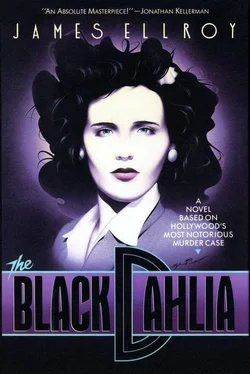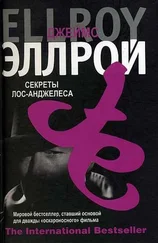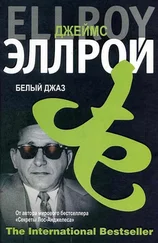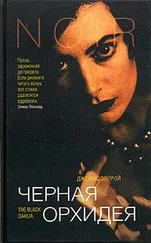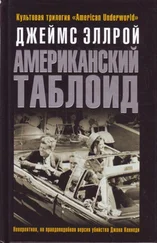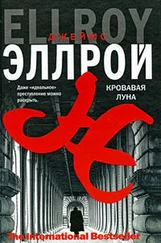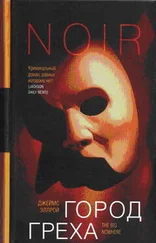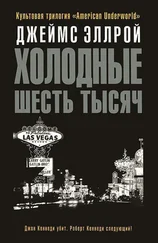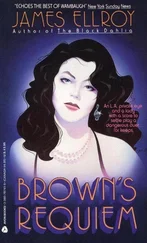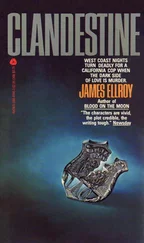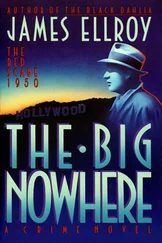Tiring of cops and robbers, I kept flipping pages. De Witt, a San Berdoo native with three pimping priors, kept yelping that the Siegel mob or the police had framed him: the mob because he sometimes ran cooze in Siegel territory, the cops because they needed a patsy for the Boulevard-Citizen job. He had no alibi for the day of the heist, and said he didn’t know Chick Geyer, Max Ottens or the still-at-large fourth man. He went to trial, and the jury didn’t believe him. He was convicted on all counts, and drew a ten-to-life jolt at San Quentin.
Kay finally appeared in a June 21 human interest piece titled “Gang Girl Falls In Love — With Cop! Going Straight? To Altar?” Beside the story there were photographs of her and Lee Blanchard, along with a mug shot of Bobby De Witt, a hatchet-faced guy sporting a greasy pompadour. The piece started with a recounting of the Boulevard-Citizens job and Blanchard’s part in solving it, then segued to sugar:
... and at the time of the robbery, De Witt was providing shelter for an impressionable young girl. Katherine Lake, 19, came west from Sioux Falls, South Dakota, in 1936, not seeking Hollywood stardom, but seeking a college education. What she got was a degree in the college of criminal hard knocks.
“I fell in with Bobby because I had no place to go,” “Kay” Lake told Herald Express reporter Aggie Underwood. “It was still the Depression, and jobs were scarce. I used to take walks near this awful boardinghouse where I had a cot, and that was how I met Bobby. He gave me my own room at his house, and he said he’d enroll me at Valley J.C. if I kept the house clean. He didn’t do that, and I got more than I bargained for.”
Kay thought Bobby De Witt was a musician, but he was really a dope peddler and procuror. “At first he was nice to me,” Kay said. “Then he made me drink laudanum and stay home all day to answer the telephone. After that it got worse.”
Kay Lake declined to state how it “got worse,” and she was not surprised when police arrested De Witt for his part in the bloody February 11 robbery. She found lodging at a career girl’s residence in Culver City, and when called by the prosecution to testify at De Witt’s trial, she did — even though she was terrified of her former “benefactor.”
“It was my duty,” she said. “And of course at the trial I met Lee.”
Lee Blanchard and Kay Lake fell in love. “As soon as I saw her I knew she was the girl for me,” Officer Blanchard told crime scribe Bevo Means. “She has that waiflike beauty I’m a sucker for. She’s had a rough life, but now I’m going to set it straight.”
Lee Blanchard is no stranger to tragedy himself. When he was 14, his 9-year-old sister disappeared, never to be seen again. “I think that’s why I quit fighting and became a policeman,” he said. “Catching criminals gives me a sense of order.”
So out of tragedy, a love story has begun. But where will it end? Kay Lake says: “The important things now are my education and Lee. Happy days are here again.”
And with Big Lee Blanchard on Kay’s case, it looks like they’re here to stay.
I closed the scrapbook. Except for the kid sister, none of it surprised me. But all of it made me think of big wrong moves: Blanchard blowing the juice from his glory case by refusing to fight smokers; a little girl obviously snuffed and dumped somewhere like garbage; Kay Lake shacking on both sides of the law. Opening the book again, I stared at the Kay of seven years before. Even at nineteen she looked way too smart to speak the words Bevo Means put in her mouth. And seeing her portrayed as naive made me angry.
I gave the scrapbooks back to the clerk and walked out of the Hearst building wondering what I’d been looking for, knowing it was more than just evidence to prove Kay’s come-on was legit. Driving around aimlessly, killing time so I’d be exhausted and able to sleep through to the afternoon, it hit me: with the old man taken care of and Warrants dead, Kay Lake and Lee Blanchard were the only interesting prospects in my future, and I needed to know them past wisecracks, insinuations and the fight.
I stopped at a steak joint on Los Feliz and wolfed a king-size porterhouse, spinach and hash browns, then cruised Hollywood Boulevard and the Strip. None of the movie marquees looked inviting, and the clubs on Sunset looked too rich for a flash-in-the-pan celebrity. At Doheny the long stretch of neon ended, and I headed up into the hills. Mulholland was rife with motorcycle bulls in speed traps, and I resisted the urge to leadfoot to the beach.
Finally I got tired of driving like a law-abiding citizen and pulled over to the embankment. Movie searchlights out of Westwood Village strafed the sky just above me; I watched them swivel and pick out low cloud formations. Following the lights was hypnotic, and I let the act numb me. Cars racing by on Mulholland hardly dented my numbness, and when the lights went off I checked my watch and saw that it was past midnight.
Stretching, I looked down at the few house lights still glowing and thought of Kay Lake. Reading between the lines of the newspaper piece, I saw her servicing Bobby De Witt and his friends, maybe selling it for him, a heister’s hausfrau jacked on laudanum. It read true, but ugly, like I was betraying the sparks between us. Kay’s exit line started coming on as true, and I wondered how Blanchard could live with her without possessing her completely.
The house lights went off one by one, and I was alone. A cold wind blew down from the hills; I shivered and got the answer.
You come off a winning fight. Sweat-drenched, tasting blood, high as the stars, still wanting to go. The handbooks who made money on you bring you a girl. A pro, a semipro, an amateur tasting her own blood. You do it in the dressing room, or in a backseat too cramped for your legs, and sometimes you kick the side windows out. When you walk outside after it, people mob you and swarm to touch you, and you go high as the stars again. It becomes another part of the game, the eleventh round of a ten-round fight. And when you go back to an ordinary life, it’s just a weakness, a loss. As long as he’d been away from the game, Blanchard had to know it, had to want to keep his love for Kay separate from that.
I got in the car and headed home, wondering if I would ever tell Kay that I didn’t have a woman because sex tasted like blood and resin and suture scrub to me.
We left our dressing rooms simultaneously, at the sound of a warning bell. Pushing out the door, I was an adrenaline live wire. I had chewed a big steak two hours before, swallowing the juice and spitting out the meat, and I could smell animal blood in my sweat. Dancing on my toes, I moved toward my corner through the most incredible fight mob I had ever seen.
The gym was packed to more than capacity, the spectators crammed together in narrow wooden chairs and bleachers. Every human being seemed to be shouting, and people in aisle seats plucked at my robe and urged me to kill. The side rings had been removed; the center ring was bathed in a perfect square of hot yellow light. Grabbing the bottom rope, I hoisted myself into it.
The referee, an old foot beat hack from Central nightwatch, was talking to Jimmy Lennon, on one-night leave from his announcer’s gig at the Olympic; at ringside I saw Stan Kenton huddled with Misty June Christy, Mickey Cohen, Mayor Bowron, Ray Milland and a shitload of high brass in civvies. Kenton waved at me; I yelled “Artistry in rhythm!” at him. He laughed, and I bared my buck choppers at the crowd, who roared their approval. The roars grew to a crescendo; I turned around and saw that Blanchard had entered the ring.
Mr. Fire bowed in my direction; I saluted him with a barrage of short punches. Duane Fisk steered me to my stool; I took off my robe and leaned against the turnbuckle with my arms draped over the top rope. Blanchard moved into a similar position; we locked eyes. Jimmy Lennon waved the ref to a neutral corner, and the ring mike slinked down from a pole attached to the ceiling lights. Lennon grabbed it and shouted above the roar: “Ladies and gentlemen, policemen and supporters of LA’s finest, it is time for the Fire and Ice tango! “
Читать дальше
